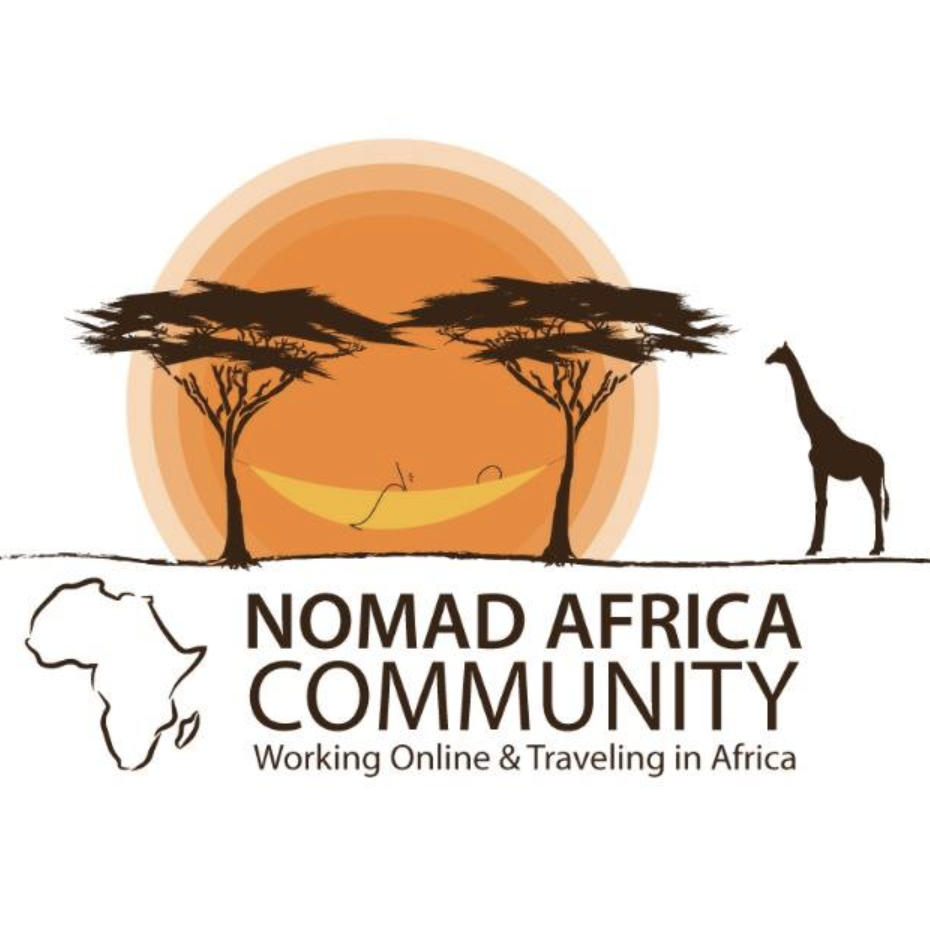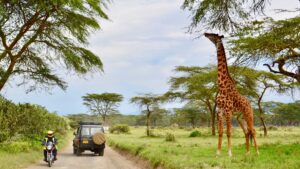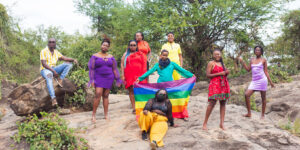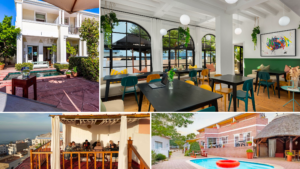Tanzania offers a unique experience for digital nomads looking for an exotic destination to live and work. This East African country is known for its beautiful beaches, diverse wildlife, and vibrant culture. As you begin exploring the digital nomad life in Tanzania, several factors will impact your experience and contribute to your quality of life.
To start, consider the necessary preparations for your Tanzanian adventure, such as obtaining a passport and visa, finding suitable accommodation, and securing reliable transportation. Additionally, it’s essential to invest in a laptop and a reliable internet connection to ensure seamless remote work.
During your time in Tanzania, you’ll have the opportunity to explore the stunning island of Zanzibar, where you can immerse yourself in the local culture, history, and beautiful landscapes. This unforgettable experience will not only enhance your digital nomad lifestyle but also provide unforgettable memories to last a lifetime.
Jump To:
Things to Do in Tanzania | Destinations | Internet | Co-Working Spaces | Coliving Spaces | Best Times to Visit | Visas | Cost of Living | How to Get There | Safety and Security | Frequently Asked Questions
| Main Languages | Swahili, English |
| Capital city | Dar es Salaam |
| Main airport(s) | Julius Nyerere International Airport (Dar es Salaam), Kilimanjaro International Airport (Arusha) |
| Currency | Tanzanian Shilling (TZS) |
| Time Zone | East Africa Time (EAT, GMT+3) |
| Plug Socket Type | Type D |
| Best time(s) to Visit | July to October |
| Internet Quality | Good |
| Highlights | Serengeti National Park; Mount Kilimanjaro; Zanzibar |
Things to Do in Tanzania
As a digital nomad in Tanzania, you’ll discover a wealth of opportunities to experience the country’s natural beauty, vibrant culture, and rich history. From idyllic beaches to world-renowned national parks, there’s something for every traveller to enjoy.
One must-visit destination for any digital nomad in Tanzania is the island of Zanzibar. Known for its stunning beaches and turquoise waters, Zanzibar is the perfect place to unwind and soak up the sun after a productive work session. While on the island, be sure to explore the historic Stone Town, a UNESCO World Heritage site that showcases traditional Swahili architecture and offers a unique insight into the region’s past.
Another must-see location for every digital nomad in Tanzania is the Serengeti National Park. This breathtaking wildlife reserve is famous for its annual wildebeest migration and is home to an unparalleled array of animal species, including the majestic African elephant, lion, and rhinoceros. A safari through the Serengeti is an unforgettable experience that will forever remind you of Tanzania’s incredible natural beauty.
In addition to exploring natural wonders, you should also take the time to immerse yourself in Tanzania’s rich culture and history. Visit local markets to pick up handcrafted souvenirs and sample the diverse cuisine, which is heavily influenced by Indian, Middle Eastern, and African flavours. You might also attend a traditional music or dance performance to witness Tanzania’s vibrant and colourful expression of its heritage.
If you’re a beach-loving digital nomad, Tanzania will not disappoint. The country boasts some of Africa’s most picturesque shorelines, with pristine white sands and warm Indian Ocean waters. Settle down at one of the many comfortable coastal spots like Dar es Salaam to enjoy your worklife balance while staying connected to the fast-paced world.
Throughout your time in Tanzania, you’ll have countless opportunities to engage with the local communities and truly connect with the authentic African experience. By choosing to immerse yourself in this diverse and dynamic country, you’ll no doubt leave with memories that will last a lifetime.
Best Destinations for Digital Nomads
Zanzibar
Welcome to the enchanting island of Zanzibar, an insular autonomous region of Tanzania. With its famous Stone Town, beautiful beaches like Nungwi and Paje, and a laid-back atmosphere, Zanzibar is a great destination for digital nomads looking for a unique East African experience. You will find a good mix of coworking spaces, cafes with Wi-Fi, and comfortable accommodations to help you stay connected and productive. Don’t forget to explore the local culture and history during your time off!
Read More >>> Zanzibar Digital Nomad Guide
Dar es Salaam
As one of the most developed cities in Tanzania, Dar es Salaam offers a vibrant urban environment for digital nomads. The city features modern infrastructure, numerous coworking spaces, and a wide range of accommodation options. Here, you can immerse yourself in Tanzanian culture while also benefiting from the convenience of city living. It’s worth taking time to explore the various neighbourhoods to find the best place to live and work as a digital nomad.
Arusha
Nestled amongst picturesque landscapes and lush greenery, Arusha is often considered an ideal destination for digital nomads seeking a more tranquil lifestyle. Many expats choose to live in Arusha as digital nomads, while others work for nonprofits or as volunteers. The city offers a slower pace of life, with various coworking spaces and housing options to suit your needs. Arusha is also a fantastic base for exploring Tanzania’s stunning national parks and natural wonders as you take breaks from your remote work.
Internet Connectivity
In Tanzania, it’s essential to ensure you have a reliable internet connection to work remotely as a digital nomad. While the average fixed broadband speed is 15 Mbps for downloads and 13 Mbps for uploads, you might encounter fluctuating Wi-Fi connections in different areas.
To increase your connectivity, consider investing in a mobile internet plan from one of Tanzania’s leading telecommunications providers, such as Zantel or Vodacom. These providers usually offer affordable data plans, with Vodacom being the more prominent operator in the country.
When choosing a place to stay, try to find accommodation with substantial Wi-Fi infrastructure so that you can work without interruption. The east coast of Zanzibar is especially ideal for digital nomads because it offers three key areas with decent infrastructure: Paje, Jambiani, and Bwejuu. Keep in mind that it’s always wise to test the internet connection at your potential accommodation before committing to a long-term stay.
While working in public places, such as restaurants or cafes, may provide Wi-Fi access, it’s essential to consider the factor of internet security. Make sure you install a reputable VPN service and use it to protect your data while connecting to public networks.
In summary, Tanzania offers a range of internet connectivity options for digital nomads. By carefully selecting your accommodation and wisely using mobile data plans from providers like Zantel and Vodacom, you can establish a reliable internet connection to help facilitate your digital nomad lifestyle in Tanzania.
Coworking Spaces in Tanzania
As a digital nomad, you’ll be pleased to know that Tanzania offers a variety of coworking spaces to fit your needs. From bustling cities like Dar es Salaam to more serene locations such as Arusha, Tanzania caters to different preferences and working styles.
In Dar es Salaam, you can find several coworking spaces with reliable internet connectivity. The average internet speed in the city is 12.65 Mbps for broadband and fibre internet, and 10.1 Mbps for mobile data speeds. Some popular coworking spaces in the city include Top 62 Coworking Spaces which provide a comfortable working environment, meeting rooms, and networking opportunities with fellow digital nomads.
Arusha, known for its proximity to national parks and being the gateway to Mount Kilimanjaro, also caters to digital nomads. The Obuntu Hub is a notable coworking space in the area that offers a peaceful environment for remote workers.
If you prefer working from cafes, Tanzania has an array of options that provide reliable Wi-Fi connections. Savour a cup of local coffee while you work, and take the opportunity to experience Tanzanian culture at a more personal level.
Remember, when selecting a coworking space or cafe, consider factors such as internet speed, location, and the overall atmosphere to ensure you have the most productive and enjoyable working experience while in Tanzania.
Read More >>> The Best Coworking Spaces in Zanzibar
Coliving Spaces in Tanzania
When looking for accommodation in Tanzania as a digital nomad, there are several options available that cater to your unique needs. From hostels to Airbnb listings, and community-oriented coliving spaces, you’ll find a comfortable place to stay while you work remotely and explore the beautiful country.
In popular cities like Dar es Salaam, you can find coliving spaces designed specifically for digital nomads and remote workers. These spaces offer a welcoming community, essential amenities, and a flexible environment to work and live together. Staying in a coliving space allows you to connect with like-minded individuals and create lasting relationships while experiencing the Tanzanian culture.
Hostels are another excellent option for affordable and short-term stays in Tanzania. Many hostels provide shared workspaces, comfortable living areas, and the opportunity to meet fellow travellers. To find the perfect hostel for your needs, consider using online platforms like Nomad Stays that offer a list of suitable options across the country.
For a more personalised experience, you can turn to Airbnb for a wide range of accommodation choices in Tanzania. From private rooms to entire homes, Airbnb allows you to select a space that suits your preferences and budget. Some Airbnb hosts even offer dedicated workspaces within their listings, making it convenient for you to work remotely from your accommodation.
To sum up, in Tanzania, you can find an array of accommodation options that cater to the needs of digital nomads. Whether you prefer the community aspect of coliving spaces, the affordability of hostels, or the flexibility of Airbnb rentals, ensure to choose a place that provides a comfortable work environment and allows you to immerse yourself in the Tanzanian culture.
Best Times to Visit
When planning your Tanzania adventure as a digital nomad, it’s essential to consider the country’s tropical climate. Tanzania experiences distinct rainy and dry seasons, which can influence your experience of the country and may affect your productivity as a digital nomad.
Worst Times to Visit
The worst times to visit Tanzania as a digital nomad are during the rainy seasons. Tanzania has two rainy seasons: the long rains from March to May and the short rains from November to December. During these periods, heavy rainfall can cause travel disruptions and make it more challenging to explore the country. Additionally, the humidity levels are higher during the rainy seasons, which can affect your comfort and overall productivity.
On the other hand, the best time to visit Tanzania is during the dry season, which runs from July to October. During the dry season, the weather is cooler and drier, making it an ideal time for exploring Tanzania’s stunning landscapes and wildlife. Additionally, the reduced humidity levels make it much more comfortable for working as a digital nomad.
As a digital nomad, you can make the most of your Tanzania experience by choosing the right time to visit. By avoiding the rainy seasons and opting for the dry season instead, you’ll ensure your productivity remains high while also enjoying the exceptional natural beauty that Tanzania offers.
Tourist and Digital Nomad Visas
When planning your digital nomad adventure in Tanzania, you’ll need to consider the visa requirements and process. This guide will provide you with essential information to make your journey to this vibrant African country as smooth as possible.
Firstly, ensure your US passport is valid and up-to-date, as it is a crucial requirement when applying for a visa. Your passport should have at least six months validity beyond the date of entry into Tanzania. If you need to renew or apply for a new passport, click here.
Upon arrival in Tanzania, you’ll need to obtain a tourist visa which grants you permission to stay in the country for a maximum of 90 days. You can apply for a single-entry tourist visa either online at the Tanzanian Immigration website or upon arrival at the port of entry. The cost of a single-entry tourist visa for US citizens is $50, payable in cash or by credit card.
When applying for your visa, remember to gather all necessary supporting documents, such as a copy of your return ticket, a recent passport-sized photograph, and yellow fever vaccination certificate (if applicable). Remember that failure to provide these documents may result in delays in processing your visa application or denial of entry.
While on a tourist visa, digital nomads can operate legally within Tanzania; however, this limits your stay to a maximum of 90 days. If you wish to stay in Tanzania for a longer period, you’ll need to apply for a temporary resident permit or explore potential digital nomad visa options offered by other countries in the region.
In summary, acquiring a tourist visa for your digital nomad adventure in Tanzania is relatively straightforward with the proper planning and necessary documentation. Make sure your US passport is valid and up-to-date, research the visa requirements, and apply for a tourist visa either online or upon arrival. By following these steps, you’ll be well on your way to exploring Tanzania and embracing the digital nomad lifestyle.
Cost of Living
As a digital nomad considering Tanzania, you’ll appreciate its relatively low cost of living. To give you an idea of the general expenses in Dar es Salaam, Tanzania, here’s a breakdown of some common costs:
- Accommodation: A one-bedroom apartment will cost you around $234 per month.
- Food: Eating out at restaurants will typically cost you about $5 for a meal.
- Local transportation: Expect to pay around $1.5 per kilometre in a taxi.
The overall cost of living for a digital nomad in Dar es Salaam is roughly $1,389 per month. Of course, this cost may vary depending on your lifestyle and personal preferences.
While planning your budget, remember that the local currency in Tanzania is the Tanzanian Shilling (TZS). Keep an eye on exchange rates to ensure you’re getting good value for your money.
In conclusion, the low cost of living in Tanzania, alongside its rich culture and stunning natural beauty, makes it an attractive destination for digital nomads. With a well-planned budget, you can take advantage of all this incredible country has to offer without breaking the bank.
How to Get to Tanzania
When planning your trip to Tanzania as a digital nomad, there are various transportation options to consider. First, book your flight to the country, with major international airlines servicing Julius Nyerere International Airport (DAR) in Dar es Salaam and Kilimanjaro International Airport (JRO) near Arusha. Upon arrival, you can choose from several modes of transportation to get around.
Car rentals are available at the airports and major cities. Hiring a car gives you flexibility to explore Tanzania at your own pace. However, remember that driving in Tanzania can be challenging due to road conditions and traffic.
Taxis are a convenient way to travel within cities, especially if you’re not familiar with the area. Ensure to negotiate the fare before starting your journey, as many taxis don’t have meters.
In addition to taxis, boda bodas (motorcycle taxis) can be an affordable and faster way to get around in urban areas. While they can weave through traffic easily, exercise caution and wear a helmet for safety.
For intercity travel, consider taking a local bus known as a dala dala. These minibuses are a cheap but crowded mode of transportation, allowing you to experience the local culture firsthand. Keep in mind that dala dalas may not offer the most comfortable ride and can take longer to reach your destination.
If you’re planning to visit Zanzibar or other islands, you can use a ferry service from Dar es Salaam. Ferries run multiple times a day and offer different classes of travel. Make sure to arrive at the ferry terminal early to purchase your ticket and avoid delays.
Regardless of your preferred mode of transportation in Tanzania, ensure that you remain aware of your surroundings and prioritise your safety while enjoying the country’s beauty and culture.
Safety and Security
When travelling to Tanzania as a digital nomad, safety and security should be one of your top priorities. Tanzania is known as one of the most peaceful countries in East Africa, yet it’s essential to take necessary precautions to ensure a smooth and enjoyable experience in this beautiful nation.
Always be aware of your surroundings and take note of any potential dangers. As in any new location, it’s essential to avoid walking alone at night, particularly in poorly-lit areas. When possible, use a trusted local taxi service or ride-sharing apps like Uber for your transportation needs.
If you’re staying in a city such as Dar es Salaam, you’ll be pleased to know that many tourist destinations have police stations nearby. This presence of law enforcement instills a sense of safety among visitors and locals alike. If you face any issues, the local police are generally helpful and ready to assist.
Moreover, Tanzania has a diverse range of wildlife, including lions. While these majestic creatures are unlikely to be encountered in urban areas, it’s essential to be mindful of their presence if you venture into the country’s wilderness – national parks and reserves. Always adhere to the guidelines provided by park authorities and take part in guided tours with experienced professionals for optimal security.
When it comes to cybersecurity, ensure your devices are equipped with robust antivirus and firewall software to protect your sensitive information. As a digital nomad, you rely heavily on your gadgets, so keeping them secure should be a priority. Furthermore, try to use password-protected Wi-Fi connections or utilize a VPN when working in public spaces to prevent potential cyber threats.
In conclusion, while Tanzania is generally considered safe for digital nomads, incorporating these security measures can help you to enjoy your time in this vibrant, culturally-rich country with peace of mind.
Conclusion
As a digital nomad considering Tanzania, it’s essential to take the necessary steps and preparations to ensure a smooth transition. From obtaining your visa to finding accommodation, your experience in this diverse and culturally rich country can be an extraordinary one if you take the time to plan and prepare.
When working in Tanzania, you’ll find that some areas, like Zanzibar, offer a blend of cultural experience and remote working opportunities. As you move through the country, make sure to maintain a reliable internet connection and adapt to local customs.
Remember to stay informed about local regulations. As you explore this beautiful country, balance your remote work with absorbing the unique scenery and culture Tanzania has to offer. In doing so, you’ll find yourself growing both professionally and personally, making the most of your digital nomad experience in Tanzania.
Frequently Asked Questions
What is the internet speed like in Tanzania?
The internet speed in Tanzania can vary depending on your location. In major cities, you can expect a decent internet connection with an average speed of 7-10 Mbps. However, in rural areas, the speed can be much lower. It is recommended to check the internet availability in your chosen area before settling down, to ensure it is suitable for your needs as a digital nomad.
Are there coliving spaces available in Tanzania?
Coliving spaces are not widespread in Tanzania, but you can still find some options in major cities such as Dar es Salaam or Arusha. You may need to spend some time researching and networking with other digital nomads to find suitable coliving options. There are also a number of serviced apartments and Airbnb rentals that can cater to digital nomads.
What are the best cities for digital nomads in Tanzania?
Dar es Salaam, the largest city in Tanzania, is a popular choice among digital nomads due to its better infrastructure and internet connectivity. Other options include Arusha, which is known for its expat community and proximity to numerous national parks, and Zanzibar, a beautiful island with a growing digital nomad community. Each city has its own charm and attractions, so it is essential to identify your personal preferences before choosing a location.
Is it easy to find remote work communities in Tanzania?
While remote work communities are not as established in Tanzania as in other digital nomad hotspots, they are certainly growing. You can find groups on social media and platforms like Meetup where digital nomads and remote workers connect and share experiences. It is essential to network actively, both online and in-person, to establish connections with like-minded people in Tanzania.
How suitable is Zanzibar for digital nomads?
Zanzibar is a picturesque island that offers a unique experience for digital nomads. It has a growing community of remote workers and offers a relaxed, laid-back atmosphere. Internet speed can be a concern, especially outside the main city, Stone Town. However, with proper planning andan examination of The Full Digital Nomad Guide to Zanzibar, a digital nomad can make the most of this beautiful destination.









